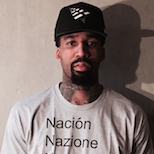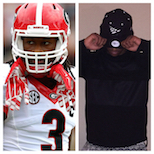Tend And Defend
05.10.2011
SPORTS
A few days before the Los Angeles’ Lakers epic playoffs demise, Andrew Bynum addressed his team’s struggles by saying very little about rebounding, defense, scoring, hustle, energy, physicality, or any facets related to playing the game of basketball. Instead Bynum said, “It’s obvious we have trust issues and unless we come out and discuss them, then nothing will change.” Similarly, after the Boston Celtics saw Rajon Rondo dislocate his elbow after getting tangled up with Dwyane Wade, Kevin Garnett remarked, “You see one of your brothers go down, the first thing you think because we were all there when Marquis [Daniels] went down. It’s never a good feeling. [It’s] someone’s father. It’s someone’s brother, someone’s son is on the floor hurt.” Common to both Bynum and Garnett’s statements is the rhetoric of togetherness and family.
During the playoffs, these themes of unity, loyalty, and connection intensify. This is evident not only in postgame speeches, but when the entire team runs to help up a teammate who has just taken a charge. The custom of helping a teammate up is something that high school and college coaches drill into their players—Rutgers coach Mike Rice punishes his players with pushups if they fail to do so—but it seems more commonplace in the NBA during the playoffs, when the well-being of one’s brotherhood is more salient. Playoff basketball is also a time when more players are getting knocked to the floor in the first place. The affiliation that players experience with their own team translates proportionally to animosity expressed toward the opposing team.
Scientists who study this pattern of behavior call it “tend and defend,” noting that humans’ proclivity toward protecting their family co-evolved with their willingness to war with anyone who might threaten them. High-stakes competition simultaneously increases loyalty toward one’s immediate inner circle, and hostility toward anybody outside of it. The NBA playoffs exhibit this on a nightly basis. Take Bynum’s hard elbow to the diminutive Mavericks’ guard, J.J. Barea in the Lakers final game, Ron Artest’s mugging of Barea a few nights previous, Atlanta’s Zaza Pachulia and Orlando’s Jason Richardson each displaying their culturally unique mano a mano fighting styles, or the continual low-level hum of “shots fired” between the Celtics and Miami Heat. We rarely see this level of aggression during the regular season, and this is why the playoffs show the NBA at its best. They provide a stage for the greatest displays of camaraderie, and also the greatest willingness to engage in combat on the hardwood floor.





